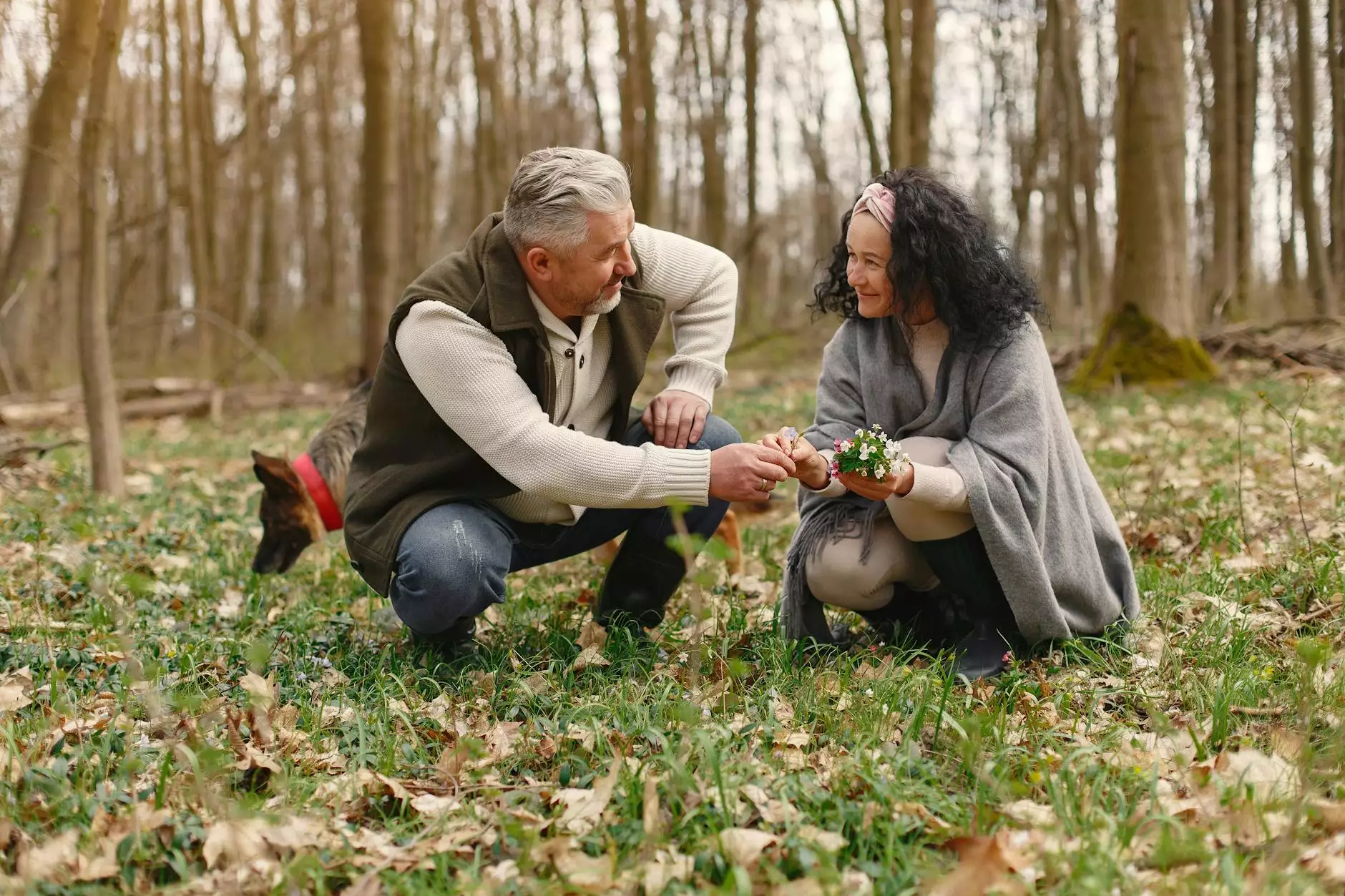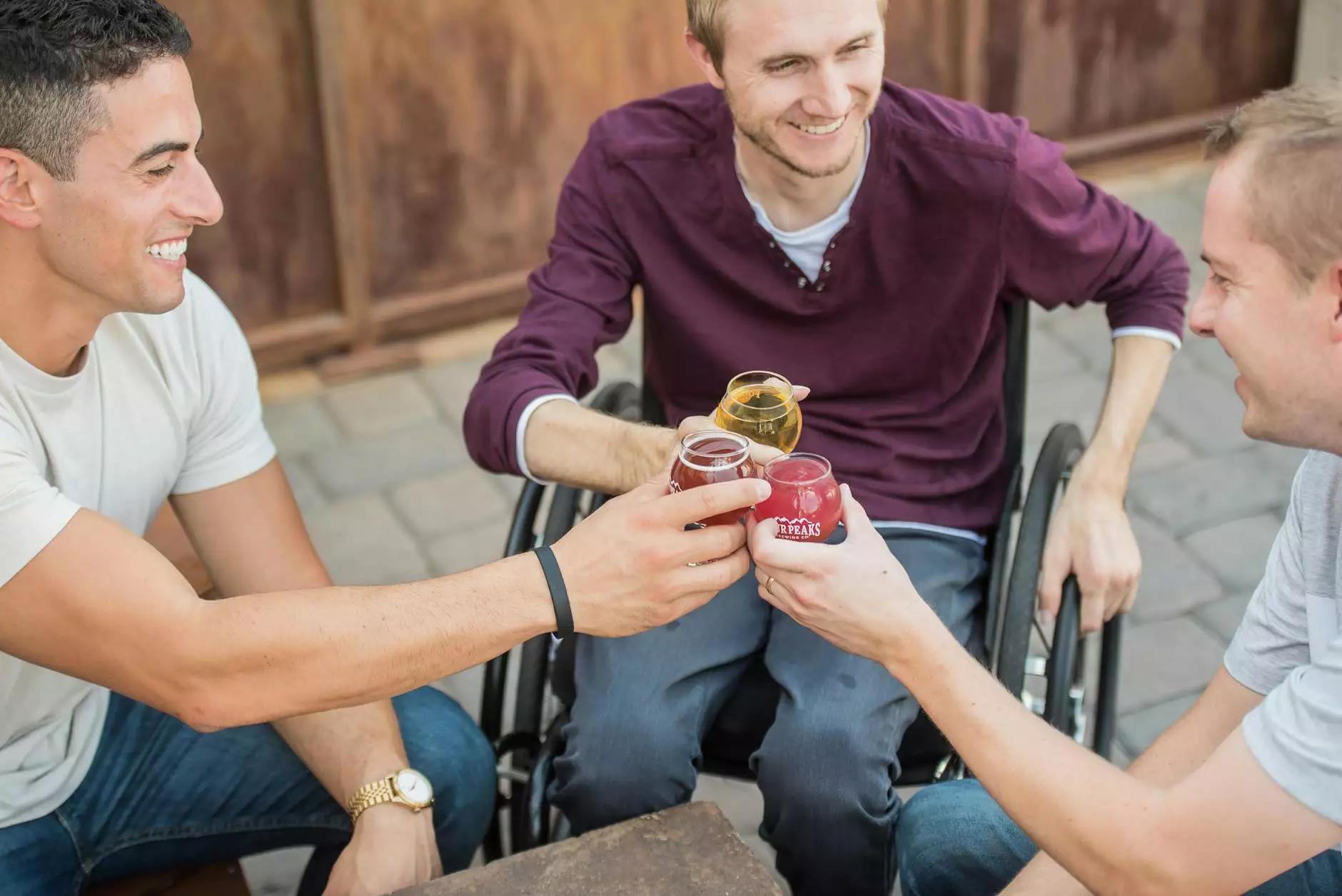A Graying Muzzle: Caring for Your Senior Dog
Dog Care
Welcome to Wisconsin Adventures' comprehensive guide on caring for your senior dog. As your furry friend gracefully ages, they require special attention and care to maintain their health and wellbeing. In this article, we will provide you with valuable insights and tips that will ensure your senior dog enjoys their golden years to the fullest.
The Aging Process in Dogs
Just like humans, dogs go through various changes as they age. It is essential to understand these changes and adapt your care routine accordingly. One of the most noticeable signs of aging in dogs is the graying of their muzzle. However, there are other internal changes that occur too. Older dogs may experience decreased energy levels, a weakened immune system, joint stiffness, and possible cognitive decline.
Diet and Nutrition
Proper nutrition plays a crucial role in the overall health of your senior dog. As they age, their dietary needs change. It is important to provide them with balanced meals that include high-quality proteins, healthy fats, and complex carbohydrates. Consult with your veterinarian to determine the appropriate diet and feeding schedule for your senior companion.
In addition to a balanced diet, senior dogs may benefit from dietary supplements such as glucosamine and omega-3 fatty acids. These supplements can help support joint health and reduce inflammation, promoting mobility and comfort.
Exercise and Physical Activity
Regular exercise is still important for your senior dog's overall physical and mental well-being. However, the intensity and duration of exercise may need to be adjusted based on their individual needs and health condition. Gentle walks, low-impact exercises, and mental stimulation activities can help keep your senior dog active and engaged.
Always monitor your dog during exercise and avoid excessive physical exertion, especially in hot weather. If you notice any signs of discomfort or fatigue, it's essential to provide them with rest and adjust their activity levels accordingly.
Dental Care
Oral health is extremely important, even for senior dogs. Dental problems can lead to pain, difficulty eating, and potentially serious health conditions. Establish a regular dental care routine for your senior dog, including daily teeth brushing and occasional professional dental cleanings performed by a veterinarian.
Provide your senior dog with appropriate chew toys and dental treats that promote dental hygiene. Regular monitoring of their teeth and gums will help you spot any signs of dental issues or gum disease.
Health Checks and Veterinary Care
Regular veterinary check-ups are crucial for senior dogs. As they age, their immune system weakens, making them more susceptible to various health conditions. Schedule regular vet visits to monitor their overall health, detect any underlying issues early, and provide appropriate vaccinations.
During these visits, your veterinarian may recommend additional diagnostic tests such as bloodwork or X-rays to assess your senior dog's internal health. Stay proactive in managing their healthcare by following any medication or treatment plans prescribed by your veterinarian.
Mental Stimulation and Enrichment
Senior dogs may experience cognitive decline or memory loss as they age. Engaging their minds through mental stimulation and enrichment activities can help maintain their cognitive function and keep them mentally sharp.
Consider interactive toys, puzzle feeders, and training exercises to keep your senior dog's mind active. Spend quality time together, providing gentle mental challenges and engaging in activities they enjoy.
Comfort and Environmental Adaptations
As your dog ages, they may require additional comfort measures and adaptations. Provide them with a soft, supportive bed that relieves joint pressure. Consider placing mats or carpets on slippery floors to prevent accidents and injuries.
Make sure their living environment is senior-friendly, with easy access to food, water, and outdoor areas. Install safety gates if necessary to restrict access to stairs or hazardous areas.
Love, Patience, and Quality Time
Finally, one of the most important aspects of caring for your senior dog is showering them with love, patience, and quality time. They may require extra attention and care during their senior years, but the bond you share with them will become even stronger.
Spend time together, engage in activities they enjoy, and provide a comforting environment. Your love and companionship will contribute immensely to their happiness and overall well-being.
Conclusion
Caring for a senior dog is a fulfilling and rewarding experience. By understanding their unique needs and making necessary adjustments to their care routine, you can ensure they enjoy their golden years to the fullest. Remember to consult with your veterinarian for personalized advice and recommendations specific to your senior dog's health condition.
At Wisconsin Adventures, we value the health and happiness of your furry companions. We hope this comprehensive guide has provided you with valuable insights on how to care for your senior dog. If you have any further questions or require assistance, please do not hesitate to contact us. Happy adventures with your senior pup!









